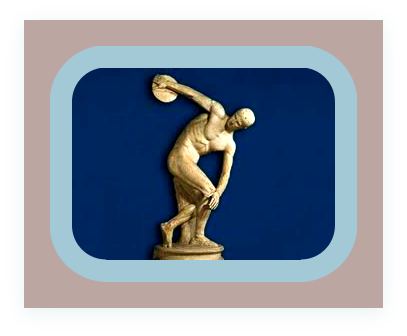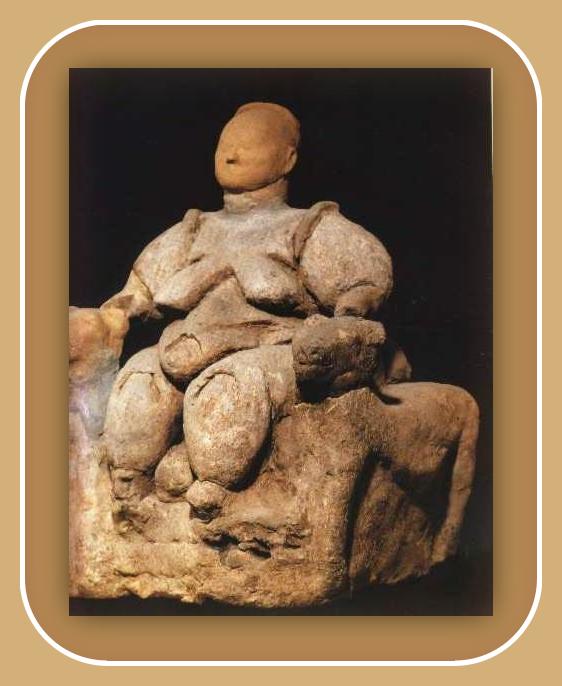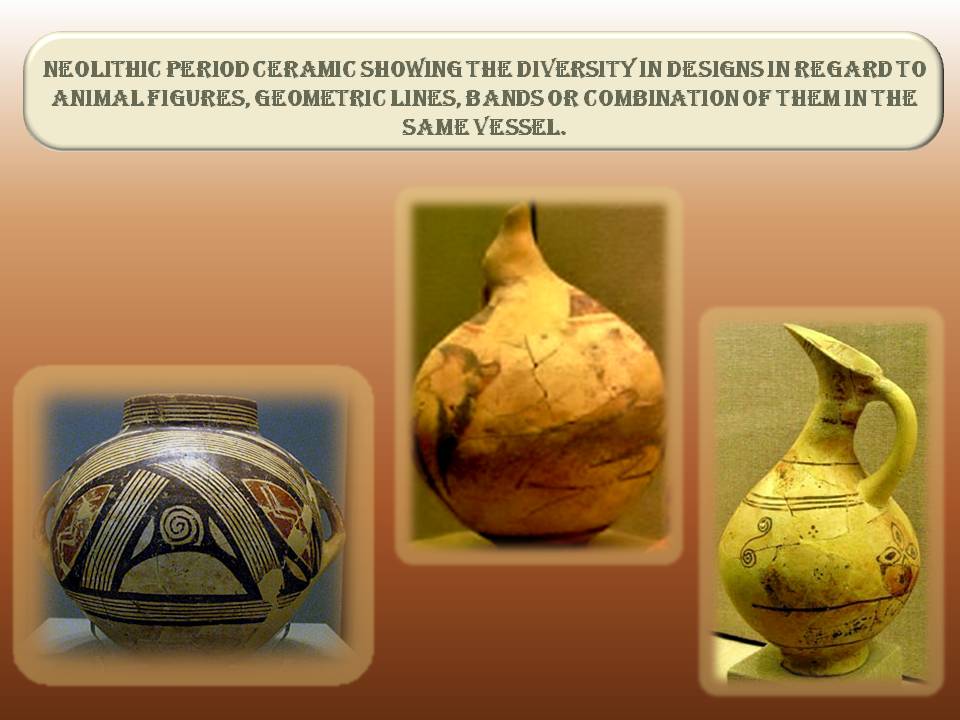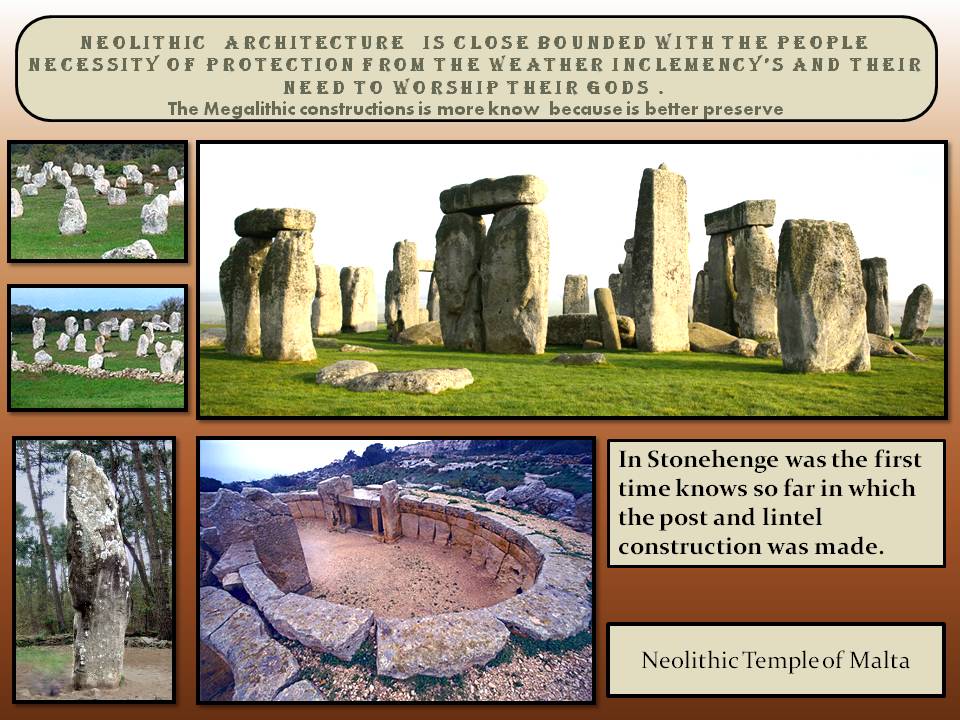Neolithic Art
(new stone age) – 8000-3000 BC.
In Neolithic period humans were settling in agrarian society, which left them enough free time to explore some key concepts of civilization – namely, religion, measurement, writing, rudiments of architecture and art. In this period the trades activities become wider helping the human conglomerates become stronger as such. The glaciers of the northern hemisphere concluded the long, slow withdrawal, providing appropriate land and stabilizing the climate. The impact on human beings was of utmost importance.
Stone Age can be divided into two phases:
- Paleolithic (Old Stone Age) humans lived as nomadic hunter-gatherers
- Neolithic (new stone age) humans adopted settled agricultural life.
This newly found “climatic stability” was one of the factors that allowed many tribes to leave their wandering ways and start building more or less villages and permanent settlements. The Neolithic peoples perfected agricultural and formation of flocks’ techniques taming their animals. With a growing and stable supply of grains and meats, humans now had time to reflect on their situation and invent some fairly radical technological advances.
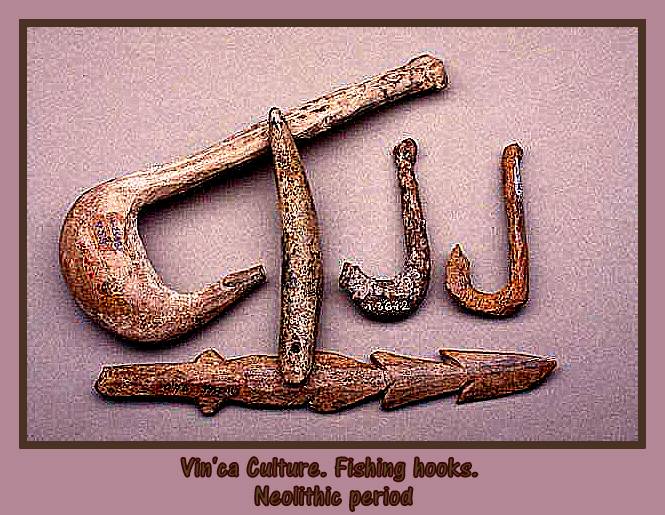
The kind of art that was developed during this period:
– The textiles
– Architecture
– The construction of megaliths, tombs, and defense walls.
– Stylized pictograms.
– The statuary, painting and ceramics had in this time greater refinement.
Neolithic Ceramic
In Neolithic period the ceramic becomes most decorated showing the diversity in designs in regard to animal figures, geometric lines, bands, or combination of them in the same vessel.
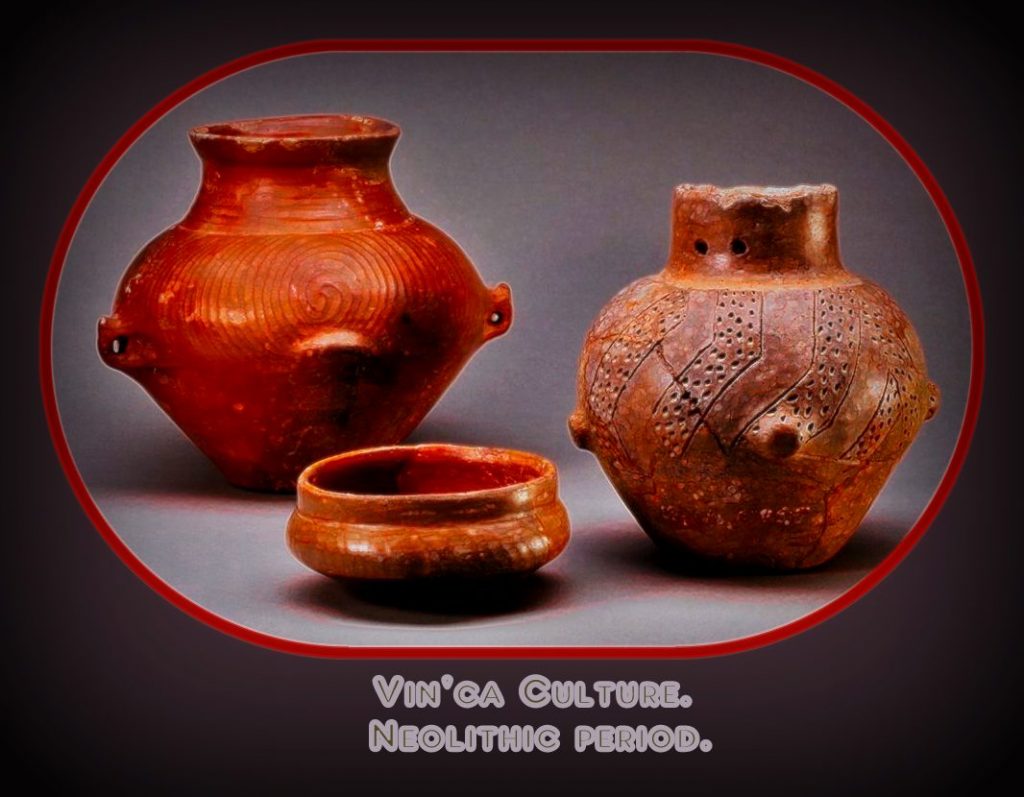
Neolithic statuettes
Sculptures were booming, after having been almost absent in the Mesolithic era. The issue of the female fertility takes a role starring as well as representation of the goddess mother very in relation to agriculture. There were statuettes representing animals, however, these were not fitted with the detail that enjoyed the goddesses. They are often broken or sliced – perhaps indicating that they were symbolically used in hunting rituals.
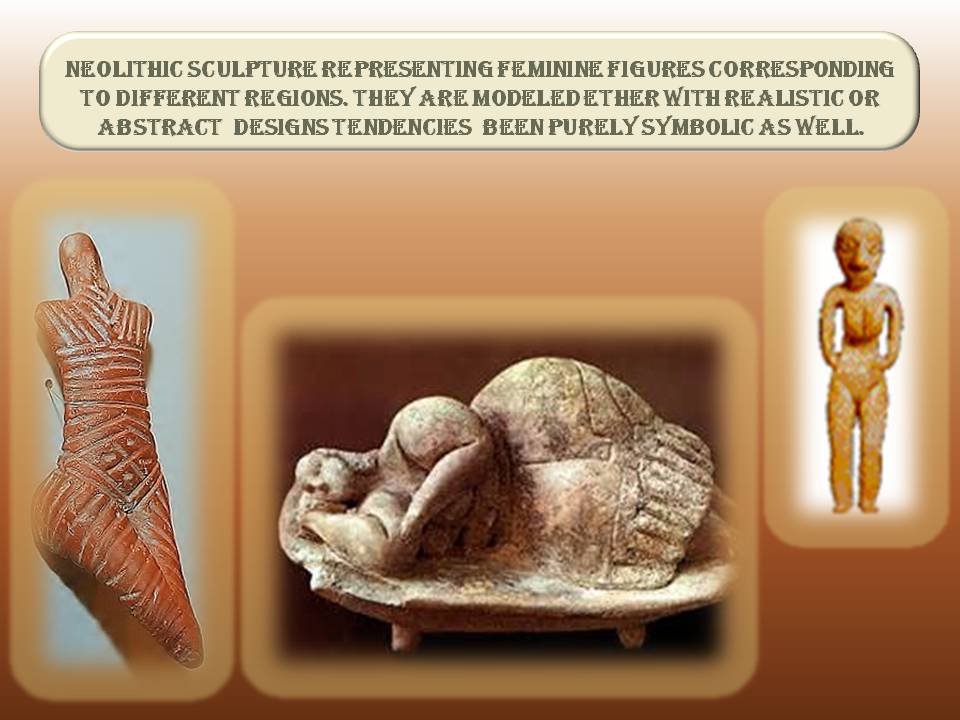
In the Near East, in particular, the figurines are now clay and baked. And not only carved in stones.
Neolithic Painting
In Western Europe and the Near East paintings are been seen strip out of the caves and cliffs and focus on the purely decorative expression elements. The findings of the Çatal bronze in a former village in the modern Turkey show lovely murals (including oldest known landscape in the world), dating from 6150 BC. Given that wall paintings are prone to fading and crumbling, only traces of this artistic manifestation in Neolithic works have survived.
The Neolithic paintings have more variety in the themes that are represented in the caves walls. Human figure is present now in the scenes but they are schematic not realistic although they do have more expressivity and can be perceived more clearly the movement intended and gestures of the figures.
In this period painting is found in pottery as well with more elaborate designs although still relatively simple with geometric decorations as it was mentioned before.
In this album you can see around 150 pictures of prehistoric paintings from cave in differents regions.
Architecture
Architecture in the Neolithic period is close bounded with the people necessity of protection from the weather inclemencies and their need to worship their gods but also since they begin to bury their deceased; tombs were also constructed.
The Megalithic constructions art is more know because is the one better preserve; thanks to has been built in stone, is now created in fixed locations. The oldest discovered megalithic sites, located in eastern Turkey, date to ca. 9000 BC.9. The highest concentration of megalithic architecture is found in Western Europe, where thousands of works have been discovered, many of them constructed during the period ca. 5000-1000 BC. (Stonehenge was the first time knows so far in which the post and lintel construction was made (in which vertical stones serve as columns for horizontal stones).
Megalithic architecture can be divided into two types:
- Buildings.
- Monuments.
– Megalithic buildings include houses, temples, and towers.
– A monument may consist of a single stone standing, (known as a monolith or menhir) or an arrangement of stones.
Temples, shrines and rings of stones were built; the gods and goddesses are provided with well-known destinations, In addition, the emergence of tombs provided places of rest for the deceased. Neolithic period is the time when village are established, and they dedicate spaces for family life, worship and trade activities. In this period were important for many human conglomerates create defensive structures surrounding those villages either because of animals attack or belligerents neighbors and for that defensive purpose walls were raised to protect the dwellings.
The construction of permanent buildings in Neolithic period gave rise to architectural sculpture, (Megalithic monuments, often are found near burial sites, although they are classified as architecture they are really a sort of sculpture (since they do not form enclosed spaces), though little of this has survived. The art of the Neolithic period when the people had not yet discovered how to melt metals continued to flourish in the Americas, Africa, Australia, and in particular Oceania. In some cases was still prospering in the (XX) century.
Main features of Neolithic art
• Was still, almost without exception, created for functional purposes.
• Increases the representation of images of humans in comparison to the animals and humans represent in more detail.
• Began to be used for ornamentation.
• In the case of the architecture and the megalithic constructions art now is created in fixed locations. (Stonehenge was the first time knows so far in which the post and lintel construction was made.
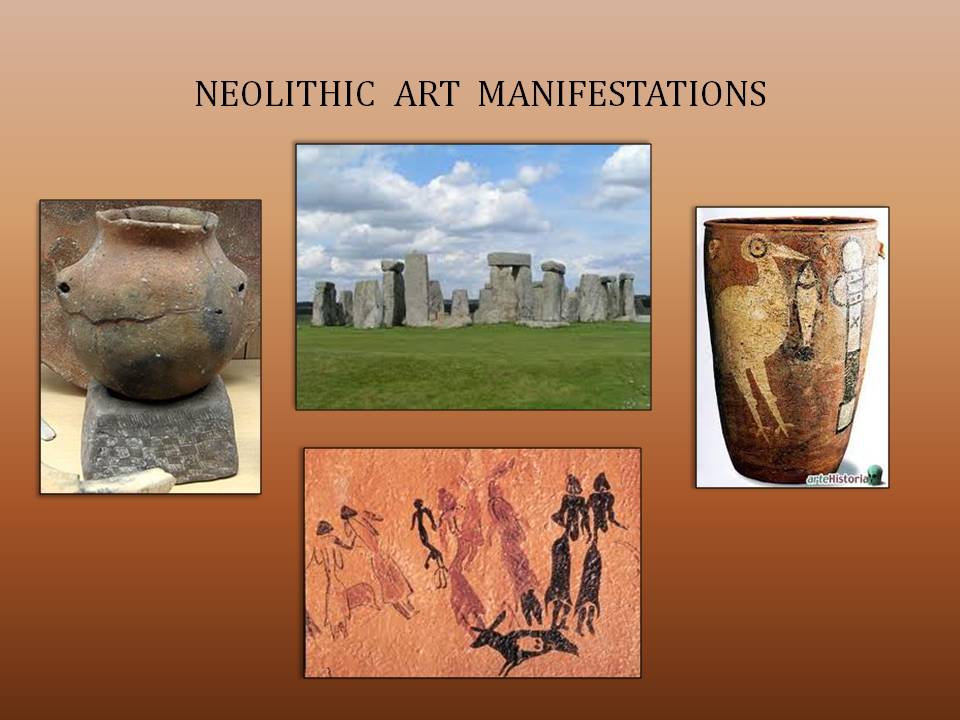
You can visit http://www.students.sbc.edu/ogborn03/prehistoricart.htm for more information.
